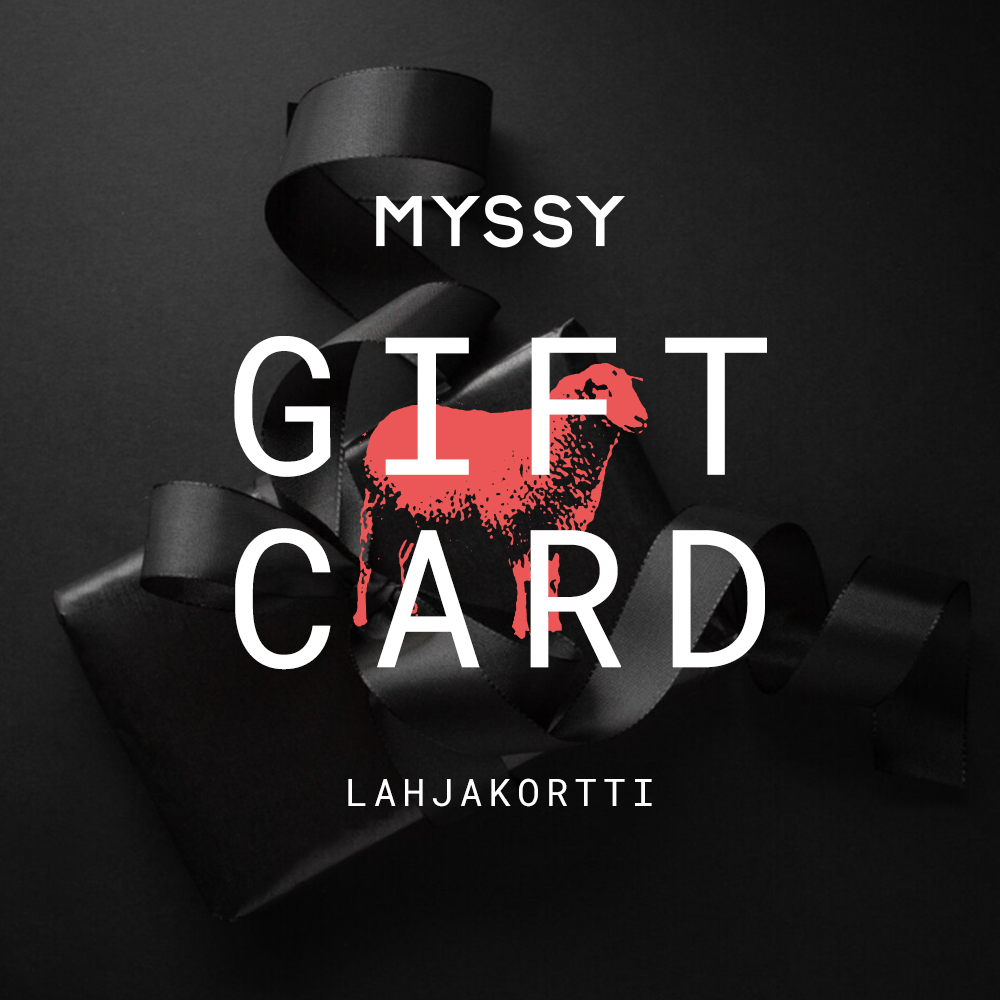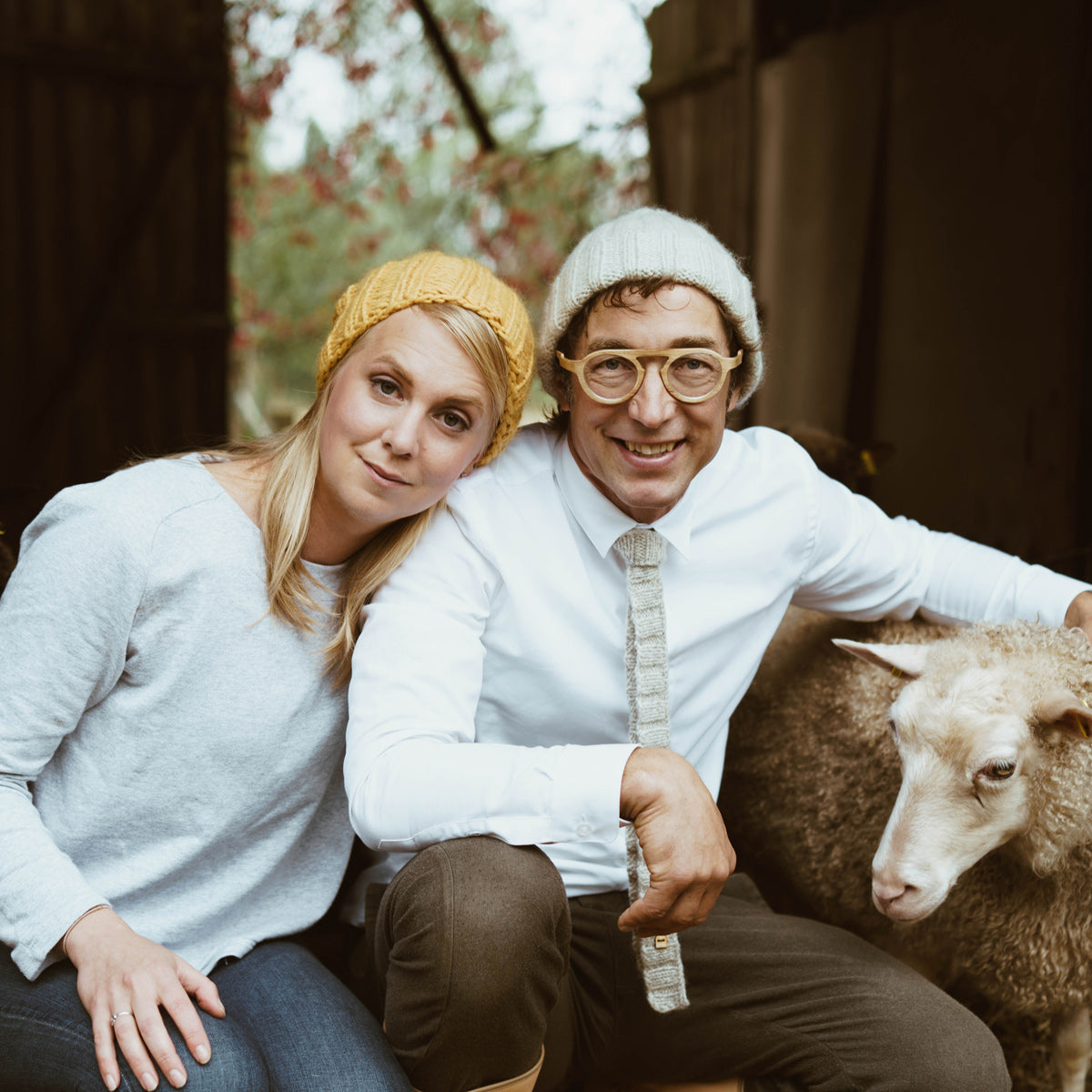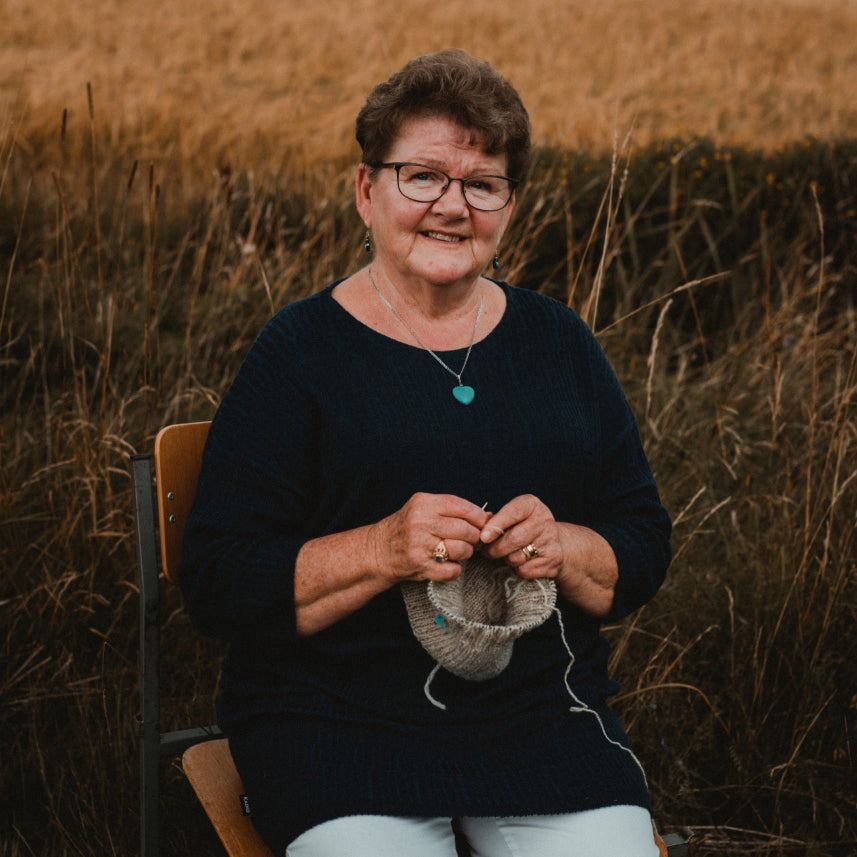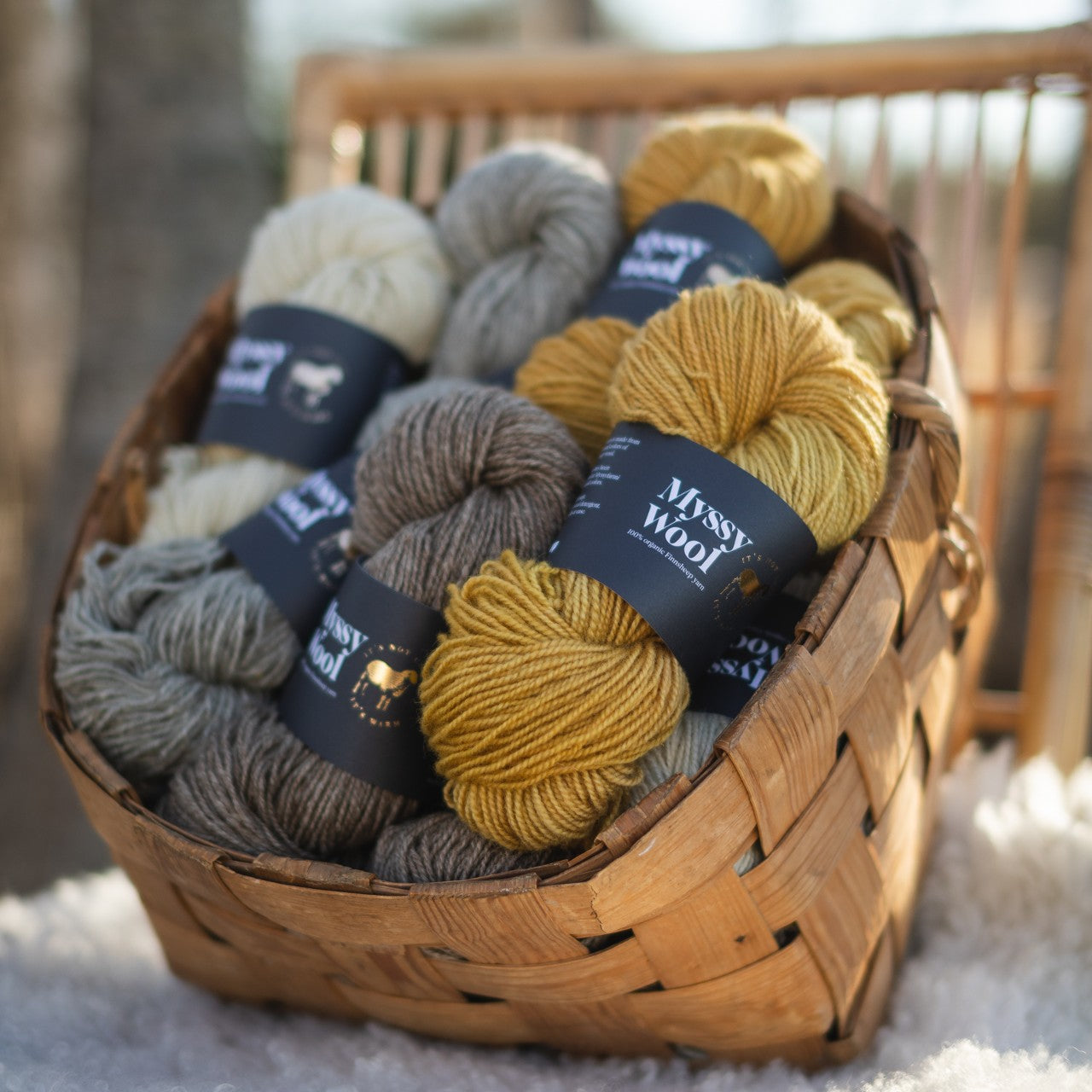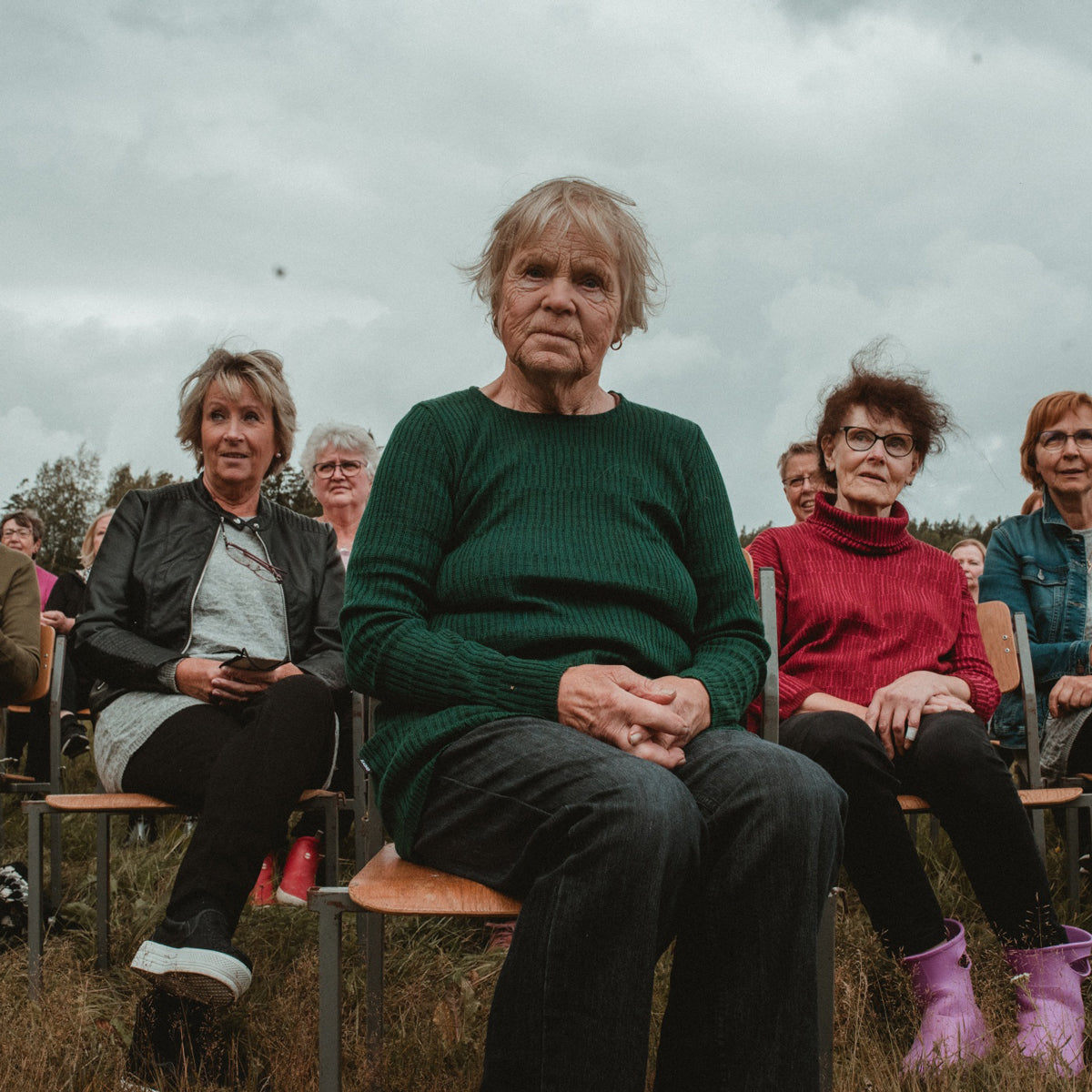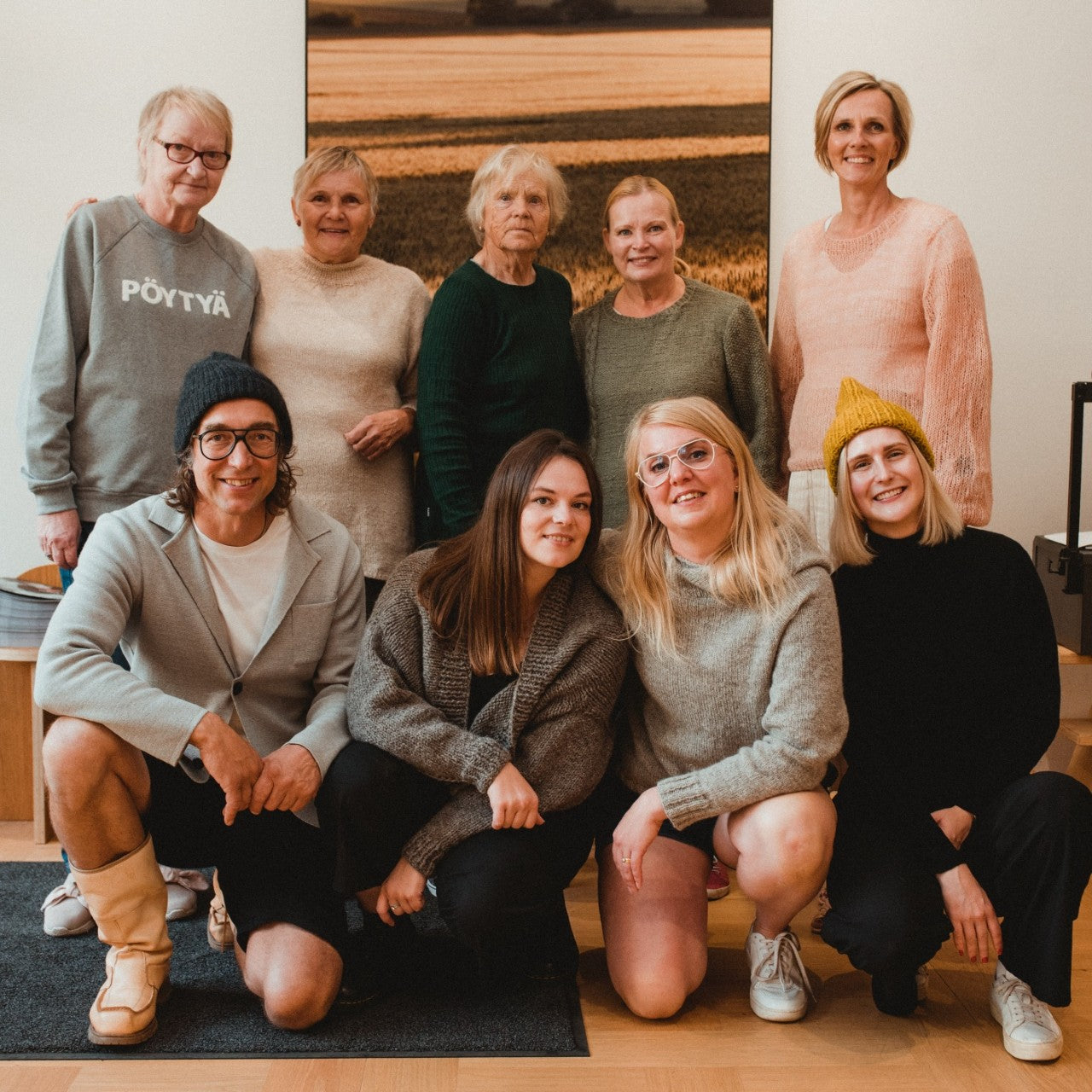Is the most responsible wool coming from Finland? This is very likely!
The starting point of Myssy: refining Finnish agricultural products
Myssyfarmi is widely known as an opinion leader of the Finnish wool industry. How come we have ended here, you might wonder? Well, Myssy is a farm spin-off, our starting point has been refining, marketing and selling primary agricultural products. We focus on local things produced here in Finland and believe they have a chance to become world class success stories as they reach their full potential. We were the one that brought the Finnsheep wool to the spotlight and explained to consumers that it is a high quality fiber in softness, luster and color. Once we set a price for raw wool it became a market standard and others followed our example. Today Finland is in the middle of a wool boom.


Finnsheep wool is a world class raw material with a wool fiber matching to merino
Finnsheep is a Finnish landrace by its origin and Finland still has the most extensive genetic Finnsheep population in the world.- Finnsheep have many production characteristics which other sheep breeds do not have or they do not combine in the same breed. It is a result of long term and local development. It is the best suited breed to its own environment.
This sheep breed belongs to the short tailed landraces, which are genetically nearer to the wild sheep than most of the domestic European sheep breeds.
Finnsheep is known for their incredibly soft wool that is light in weight yet dense. These sheep have an exceptionally wide color spectrum: white, brown and black wool can be mixed. What is perhaps the most interesting detail is that Finnsheep and Merino sheep are the only two sheep races in the world having the scales of fiber pointing inside, not outside, making it particularly soft. This might sound incredible, as Merino is a world-known sheep race and Finnsheep is like our own little secret. This might tell you something about the potential we see in Finnsheep wool.
The technical qualities of wool are superior
Wool is a superior textile fiber compared to any artificial fiber: it is naturally dirt and water-repellent and neutralizes scents. Wool adapts to different temperatures and keeps you cool in summer and warm in winter.
Our raw wool is only washed gently to not lose the natural lanolin in it. Lanolin is the natural grease that keeps wool soft, skin friendly and naturally water and dirt resistant. It is often chemically separated and sold to the cosmetic industry in normal wool to yarn production. We work to preserve these natural properties through the production process by handling our wool very gently. Whereas raw Finnsheep wool contains about 20% of lanolin in its weight, our yarns still containit about 5%.
Wool is also reusable and naturally biodegradable. It is very difficult to find an alternative fibre that would hold the same qualities and not be a massive source of micro plastics, like for example acryl is.


Wool is always a by-product in Europe
Wool is always a by-product in Europe. Sheep are production animals and the animal protection law requires sheep to be sheared once a year and animal welfare act twice a year. This means sheep are not kept for wool, but for other production purposes and even if they are just pets, wool is produced as a by-product anyway.
In Europe 200 million kilos of this by-product is wasted every year. There is no short answer to why this is happening. Wool is a raw material that has a world market price. Europe cannot compete in production costs and the global market price doesn't cover the expenses of separating the quality raw wool from trash and transportation cost to the washing facilities. Also the refining industry has moved to Asia little by little. The only way to get European wool back in use, is to pay a fair price for the raw wool that covers the cost for the farmer.
The carbon footprint of Finnish wool is smaller
Actually the carbon footprint of Finnish wool hasn’t been calculated as the carbon footprint of Finnish sheep hasn’t been calculated. In Norway there are projects going to get the numbers and perhaps climate wise they would be comparable to the Finnish ones. But it is certain that any European wool has a smaller footprint than wool coming from areas where sheep are kept particularly for the wool. The share of footprint is divided based on the kilos or Euros and in both cases the byproduct gets only a very small share of the footprint.
Contract farming makes the yarn 100% traceable
In order to guarantee the organic status of our products, traceability and transparency of our wool production are important steps in the process. Our wool is purchased directly from our 30 contract farms that we know personally. More than 75% of them are EU Certified Organic farms and all of them are annually audited and monitored by Finnish officials.
While our small-scale production volumes do not currently meet the need for international certification, all of our processes fill GOTS certification requirements for “made with organic materials” and our spinning mill uses a maximum of 25% of conventional Finnsheep wool in the Myssyfarmi yarn production. No toxic processing inputs or other harmful chemicals are used in the production, storage, or handling of Myssyfarmi yarns.


Maintaining traditional rural biotopes
In Finland sheep are production animals, but in many cases one of the main production plans of the farm is maintenance of rural biotopes. It is important to understand that a production animal that spends half of the year out in the pasture has an important role in natural circulation and improving biodiversity. Maintaining biotypes is supported with EU farming subsidies that form an important part of the revenue of many sheep farms.
Grazings have reduced dramatically in the past 50 years and many endangered species are depending on them. Sheep have an important role in reviving these biotopes and endangered species. Unlike farming many organic fibers, such as cotton or linen, producing wool is not destroying biodiversity but maintaining and improving it.


Facing the ethical questions
Wool is never vegan, not even when it is sheared from pet sheep. Ethically wool relates to the use of leather that is also a by-product. However we are ready to claim that out of all the wool in the world, Finnish wool is the most ethical wool on the market.
First of all we are using a by-product that would otherwise be wasted and solving the by-product use is ecologically a major issue to be solved. Finnish sheep farms are annually audited, animals are well cared for, no harsh chemicals are needed and unethical practices such as mulesing are not allowed in Europe. Sheep are eating the hay that is not suitable for human nutrition. Caring for the traditional biotypes is vital for the survival of many endangered species. The whole production chain is traceable and we know our contract farmers. Local spinning mills are using renewable energy in washing, heating and spinning, waste waters are properly taken care of. This is the most ethical wool on the market.
- Anna Rauhansuu
